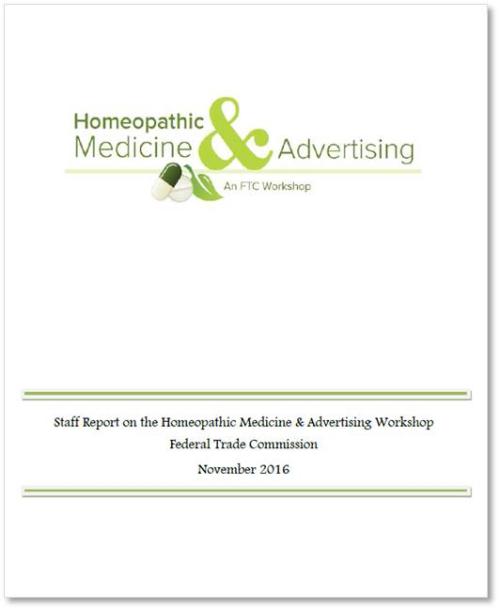The FTC applies a consistent approach to evaluating ad claims. Companies must have a reasonable basis for objective representations, including claims that a product can treat specific health conditions. Whether it’s an over-the-counter drug, dietary supplement, or food, the same established standards apply. And as an FTC Enforcement Policy Statement explains, that also holds true for OTC homeopathic drugs.
Consumers can find a host of homeopathic remedies on store shelves. Homeopathy is a view dating back to the 1700s that disease symptoms can be treated by tiny doses of substances that produce similar symptoms if given in larger doses to healthy people. Many homeopathic products are diluted so much that they no longer have detectable levels of the initial substance. Generally speaking, health claims for homeopathic products aren’t based on modern scientific methods and there’s controversy about their effectiveness.
Those were some of the topics talked about at a 2015 workshop the FTC convened to explore the issues. We’re following up on that workshop with a Staff Report and an Enforcement Policy Statement that offers guidance to businesses on how the FTC Act applies to marketing claims for OTC homeopathic drugs. Two key caveats from the outset: The Policy Statement applies only to OTC products intended for self-limiting disease conditions amenable to self-diagnosis of symptoms and treatment. And it doesn’t apply to the practice of medicine – what doctors tell their patients.
You’ll want to read the Enforcement Policy Statement for the full story – it’s short, but packed with detail – but it boils down to this: “Efficacy and safety claims for homeopathic drugs are held to the same standards as similar claims for non-homeopathic drugs” and there’s no basis for treating them differently under the FTC Act.
What are those standards? We’re thumbnailing it here, but according to the FTC’s Advertising Substantiation Policy Statement, if a company conveys that it has a certain level of proof, it must have “at least the advertised level of substantiation.”
If there’s no express or implied reference to a particular level of support, the FTC considers “the type of claim, the product, the consequences of a false claim, the benefits of a truthful claim, the cost of developing substantiation for the claim, and the amount of substantiation experts believe is reasonable.” For health, safety, or efficacy claims, companies need “competent and reliable scientific evidence,” a phrase defined in many recent cases. For claims that a product can treat a disease or its symptoms, that generally means well-designed human clinical testing.
For most OTC homeopathic drugs, the case for efficacy is based solely on traditional homeopathic theories, and not on studies applying current scientific methods. So claims that they have a therapeutic effect lack the reasonable basis required by FTC law, and therefore are likely misleading.

However, the FTC has long recognized that marketing materials may include additional information that may prevent claims from being misleading. According to the Enforcement Policy Statement, the promotion of an OTC homeopathic product for an indication that isn’t substantiated by competent and reliable scientific evidence may not be deceptive if it states and effectively communicates that: “(1) there is no scientific evidence that the product works, and (2) the product’s claims are based only on theories of homeopathy from the 1700s that are not accepted by most modern medical experts.” (Of course, established standards for effective disclosures apply.)
In addition, as the Enforcement Policy Statement observes, there’s an inherent contradiction in telling consumers that a product is effective and telling them that there’s no scientific evidence for that assertion. So it’s possible that the disclosure may be insufficient to prevent deception. Marketers may want to develop extrinsic evidence to determine the net impression consumers take from their marketing materials.
Read the Enforcement Policy Statement for more information and check out the FTC Staff Report on the Homeopathic Medicine and Advertising workshop.
